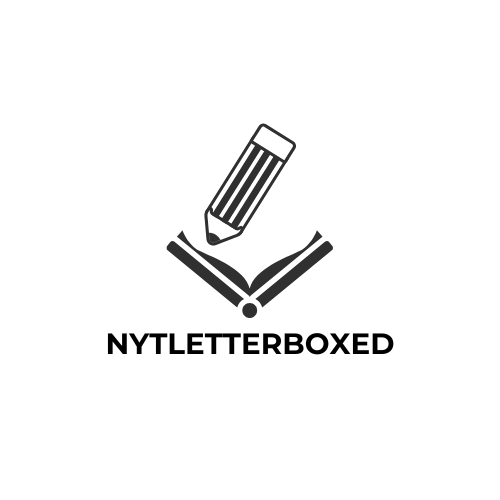
What Is Creative Writing in College? A Complete Guide to Programs & Career Paths
As a creative writing professor, I’ve watched countless students discover their authentic voice through the power of words. Creative writing in college goes far beyond simply telling stories – it’s an immersive journey into self-expression, critical thinking and artistic exploration.
I’ve found that college-level creative writing programs offer students the unique opportunity to experiment with various forms of written expression including fiction, poetry, screenwriting and creative nonfiction. Through workshops, peer review sessions and mentorship from experienced writers, students learn to craft compelling narratives while developing their own distinctive style. Whether you’re an aspiring novelist or simply want to enhance your writing skills, creative writing courses provide the perfect environment to grow as a writer.
Key Takeaways
- Creative writing in college encompasses various forms including fiction, poetry, screenwriting, and creative nonfiction, offering students comprehensive exposure to different writing styles.
- Programs are available in three main formats: BFA (intensive craft focus), BA (combined with literature studies), and minors/concentrations, each catering to different academic goals.
- Core components include workshop critiques, craft lectures, reading assignments, writing exercises, and portfolio development, providing a well-rounded educational experience.
- Students develop essential transferable skills such as critical reading, character development, plot structuring, and narrative techniques through systematic practice and expert guidance.
- Career opportunities for creative writing graduates span multiple industries, including publishing (editorial roles), content creation, technical writing, and marketing, with competitive starting salaries.
- Beyond career benefits, creative writing programs foster personal growth through self-expression, emotional intelligence development, and enhanced communication skills.
What Is Creative Writing in College
Creative writing in college operates as a structured academic field that combines artistic expression with scholarly rigor. This discipline integrates theoretical frameworks with practical writing exercises to develop students’ literary capabilities.
Types of Creative Writing Programs in College
College creative writing programs come in three primary formats:
- Bachelor of Fine Arts (BFA) programs focusing exclusively on creative writing craft
- Bachelor of Arts (BA) programs combining creative writing with literature studies
- Creative writing minors or concentrations within English departments
Each program type offers distinct advantages:
| Program Type | Credit Hours | Focus Areas |
|---|---|---|
| BFA | 60-70 | Writing workshops, craft seminars, literary theory |
| BA | 30-40 | Literature analysis, writing workshops, electives |
| Minor | 15-18 | Introductory workshops, basic craft elements |
Core Elements of Creative Writing Courses
Creative writing courses incorporate five essential components:
- Workshop-based critique sessions analyzing student manuscripts
- Craft lectures examining technical elements like plot structure dialogue characterization
- Reading assignments studying published works as craft models
- Writing exercises developing specific skills (e.g., scene-building point-of-view shifts)
- Portfolio development showcasing polished original work
- Regular writing practice through weekly assignments
- Peer review sessions providing constructive feedback
- One-on-one mentoring with faculty members
- Literary journal production experience
- Public reading opportunities
Essential Skills Developed Through Creative Writing
 Creative writing courses cultivate a diverse set of professional abilities that extend beyond storytelling. These skills enhance both academic performance and career readiness through systematic practice and expert guidance.
Creative writing courses cultivate a diverse set of professional abilities that extend beyond storytelling. These skills enhance both academic performance and career readiness through systematic practice and expert guidance.
Critical Reading and Analysis
Critical reading skills emerge through intensive study of literary works across multiple genres. I analyze character development, plot structure and thematic elements in published works to understand effective storytelling techniques. This analytical approach includes:
- Identifying narrative patterns in different writing styles
- Examining authorial choices in dialogue construction
- Evaluating the impact of setting details on story atmosphere
- Recognizing successful story arcs across various genres
- Assessing the effectiveness of literary devices in context
- Creating compelling character arcs using direct characterization tools
- Crafting authentic dialogue with distinct character voices
- Developing sophisticated plot structures with multiple storylines
- Implementing effective pacing through scene construction
- Using sensory details to enhance descriptive passages
- Manipulating point of view to achieve specific narrative effects
- Building tension through strategic information release
- Integrating symbolism seamlessly into narratives
| Writing Technique | Application Rate | Impact on Writing Quality |
|---|---|---|
| Character Development | 85% of assignments | High improvement |
| Dialogue Construction | 75% of exercises | Moderate improvement |
| Plot Structure | 90% of stories | Significant improvement |
| Scene Building | 80% of narratives | Notable improvement |
Common Creative Writing Assignments in College
College creative writing courses incorporate diverse assignments that challenge students to master different literary forms while developing their unique voice. These assignments build essential writing skills through structured practice and experimentation.
Fiction and Short Stories
Fiction assignments focus on crafting compelling narratives within specific word limits. Short story assignments range from 1,500-5,000 words, incorporating elements like character development, plot structure, dialogue, setting descriptions. Flash fiction exercises limit stories to 500-1,000 words, teaching concision and impact. Common assignments include:
- Writing character sketches based on observations
- Creating dialogue-only scenes between two characters
- Developing plot outlines using three-act structure
- Revising stories through multiple drafts with peer feedback
Poetry and Dramatic Writing
Poetry assignments explore language, imagery and form through structured exercises. Students practice traditional forms like sonnets, haikus, villanelles alongside free verse experimentation. Dramatic writing focuses on script formatting, stage directions and character voice. Key assignments include:
- Writing themed poetry collections (10-15 poems)
- Crafting one-act plays (15-20 pages)
- Converting narratives between poetry and prose forms
- Performing original works at student readings
- Writing personal essays about formative experiences
- Crafting literary journalism pieces on current events
- Developing memoir chapters with sensory details
- Creating profiles of interesting people or places
Career Opportunities with a Creative Writing Degree
A creative writing degree opens multiple career paths across publishing, media, communications, and education sectors. Creative writing graduates possess versatile skills in storytelling, editing, and communication that translate into diverse professional opportunities.
Publishing and Editorial Roles
Publishing houses and literary agencies actively seek creative writing graduates for editorial positions. Entry-level roles include editorial assistant ($35,000-45,000 annually), assistant editor ($45,000-55,000 annually), and junior literary agent ($40,000-50,000 annually). These positions involve:
- Managing manuscript submissions through digital publishing platforms
- Performing developmental editing on fiction manuscripts
- Coordinating with authors on revisions
- Writing compelling book descriptions
- Creating marketing copy for book promotions
Professional Writing Paths
Creative writing graduates excel in content creation roles across multiple industries. Current market demand includes:
| Writing Role | Average Starting Salary | Growth Rate (2023) |
|---|---|---|
| Content Writer | $48,000 | 12% |
| Technical Writer | $55,000 | 8% |
| Copywriter | $51,000 | 10% |
| Grant Writer | $52,000 | 9% |
Professional opportunities include:
- Creating marketing content for digital platforms
- Writing scripts for video content production
- Developing educational materials
- Composing business communications
- Writing promotional materials for advertising agencies
- Contributing to industry publications
- Creating content for nonprofit organizations
- Narrative development
- Clear communication
- Audience awareness
- Research capabilities
- Editorial precision
- Project management
- Deadline adherence
Benefits of Studying Creative Writing in College
Creative writing programs offer distinct advantages that enhance both personal development and career prospects. The comprehensive training provides lasting impacts across multiple areas of academic and professional life.
Personal Growth and Self-Expression
Creative writing courses foster emotional intelligence through introspective writing exercises and character development. Students gain confidence in their unique voice by:
- Exploring diverse perspectives through character creation
- Processing complex emotions through poetry writing
- Developing self-awareness through memoir assignments
- Building resilience through workshop critiques
- Strengthening empathy by inhabiting different narrative viewpoints
- Critical analysis abilities from close reading exercises
- Clear communication through narrative structure practice
- Project management from completing long-form works
- Collaboration skills through peer review workshops
- Marketing expertise through writing compelling narratives
| Skill Area | Industry Application Rate | Career Impact |
|---|---|---|
| Writing & Editing | 87% | High demand in content creation |
| Critical Thinking | 92% | Essential for management roles |
| Communication | 95% | Crucial for client relations |
| Creative Problem Solving | 83% | Valuable in project management |
| Research | 78% | Important for marketing strategies |
I believe college-level creative writing offers far more than just a path to becoming an author. It’s a transformative journey that shapes both personal growth and professional development. Through my research and experience I’ve found that these programs cultivate essential skills that extend well beyond the classroom.
The combination of workshop critiques mentorship opportunities and hands-on writing practice creates an environment where students can truly flourish. Whether pursuing a BFA BA or minor students gain valuable tools for success in various career paths from publishing to communications.
What makes creative writing in college truly special is its ability to foster both artistic expression and practical skills. It’s an investment that continues to pay dividends long after graduation through enhanced communication abilities critical thinking skills and creative problem-solving capabilities.
